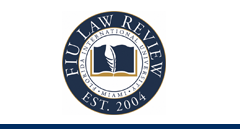Alternate Title
The Modern Border: The Government Can Search . . . Anything?
Keywords
international border searches, reasonable suspicion, cell phones, forensic searches, privacy, Fourth Amendment
Abstract
The evolution of modern technology has introduced new obstacles in interpreting the Fourth Amendment’s application to searches of peoples’ effects. Specifically, the longstanding exception to the Fourth Amendment permitting searches at the international border in the absence of probable cause does not so neatly apply to forensic searches of cell phones. Consequently, a circuit split has emerged on two aspects of the issue: the scope of the border exception and the requisite level of suspicion within that exception. The Supreme Court should find that forensic cell phone searches at the international border implicate Fourth Amendment privacy interests, requiring the border exception’s scope to be limited to searches for ongoing or imminent criminal border activity. Even within that scope, officials must have reasonable suspicion of such ongoing or imminent criminal activity before conducting a forensic cell phone search. Doing so ensures both security at the international border and individuals’ rights under the Fourth Amendment.
Recommended Citation
Abigail Nusbaum, The Modern Border: The Government Can Search . . . Anything?, 18 FIU L. Rev. 483 (2024), https://doi.org/10.25148/lawrev.18.2.13.





